Turn-based RPGs are officially back in fashion, but I want more: It's time for modern developers to take another pass at FF12's gambit system
Gambits, my beloved.
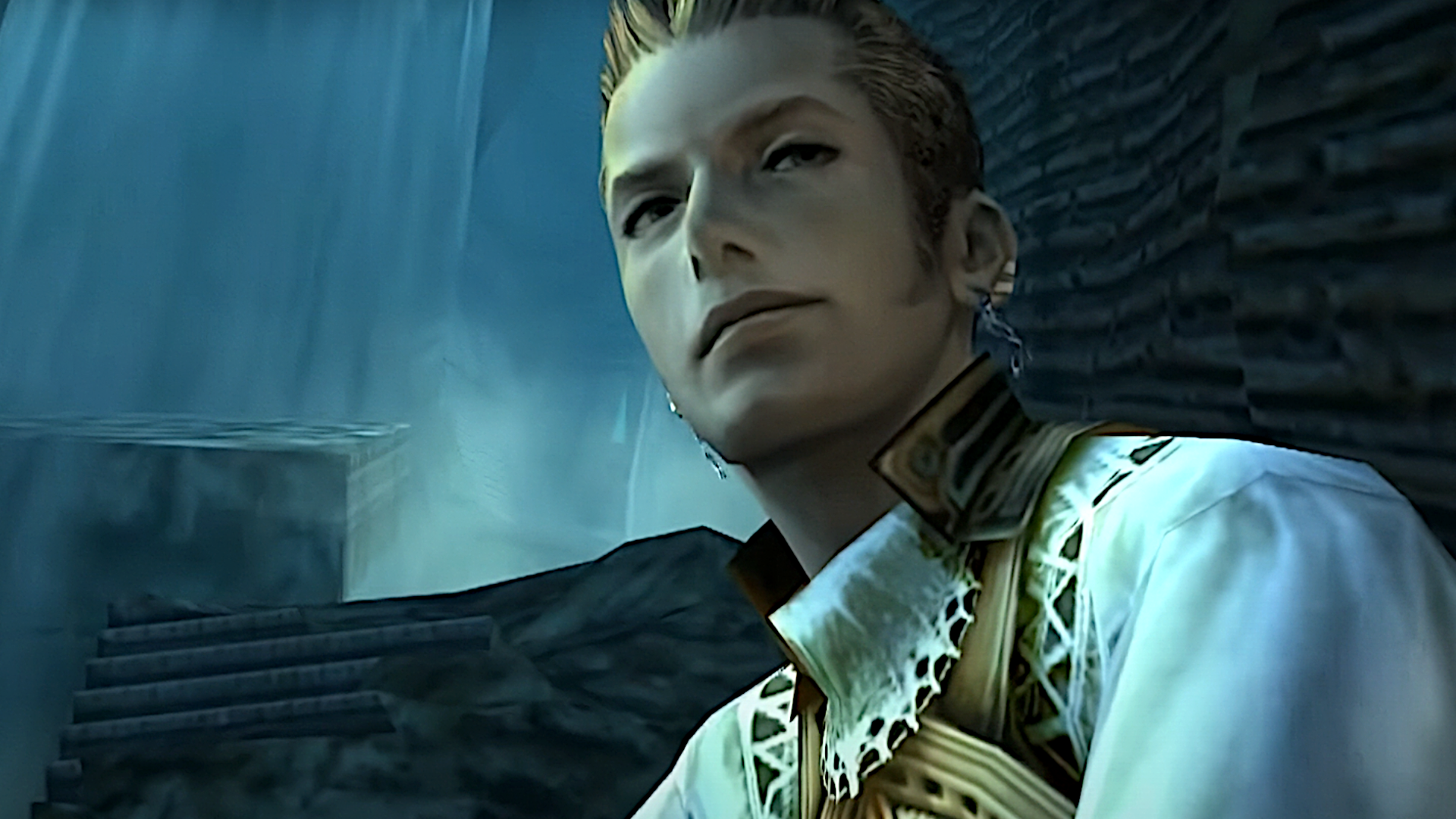
So, we can well and truly state that turn-based RPGs are back in fashion, right? Baldur's Gate 3 and Clair Obscur: Expedition 33 are some of the industry's most successful entries in the genre—the argument has well and truly been won.
Whether a game's turn-based or not matters less than whether the game itself is good: Make a good turn-based RPG, and people will play it. Make a bad action RPG, and people won't. Case closed, debate over, we can all go home.
"Except," I say, annoyingly wedging my boot in the garage door before it closes for good, "What if we looked under some of these other tarps? Surely there's a couple other RPG mechanics that were left for dead that we could bring back?" I then make a show of pretending to browse before heading for the one thing I actually want to dust off.
In the domain of RPGs, there are generally three ways of doing things. You've got your modern action RPG, your turn-based RPG, and the middle child, "real time with pause". But among this triumvirate there's a fourth option lurking in the shadows: The gambit system from Final Fantasy 12.
In case you're unfamiliar, the gambit system is essentially "real time with pause" with a twist. Characters in FF12 fight on a sort of timer. Next to their health bar, their current action is displayed in a smaller, charge-based element of the UI. When this bar fills, they do that thing.
However, you can program what things they elect to do via gambits, a series of "if > then" commands accessible through a menu that operates on a priority system. As you play through the game, you unlock different potential commands and a larger list of gambits to organise, easing you into micromanagement like a hot bath.
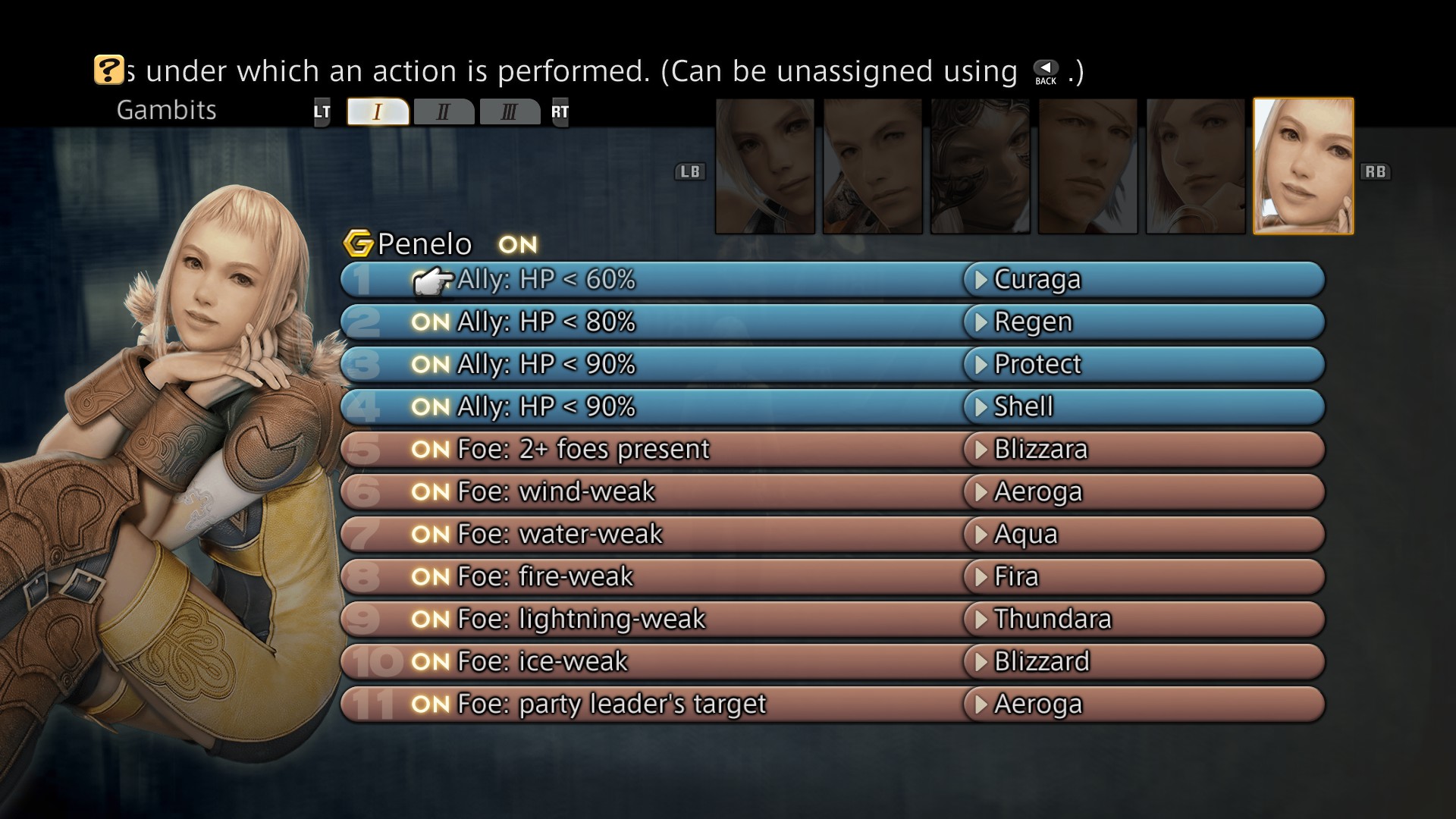
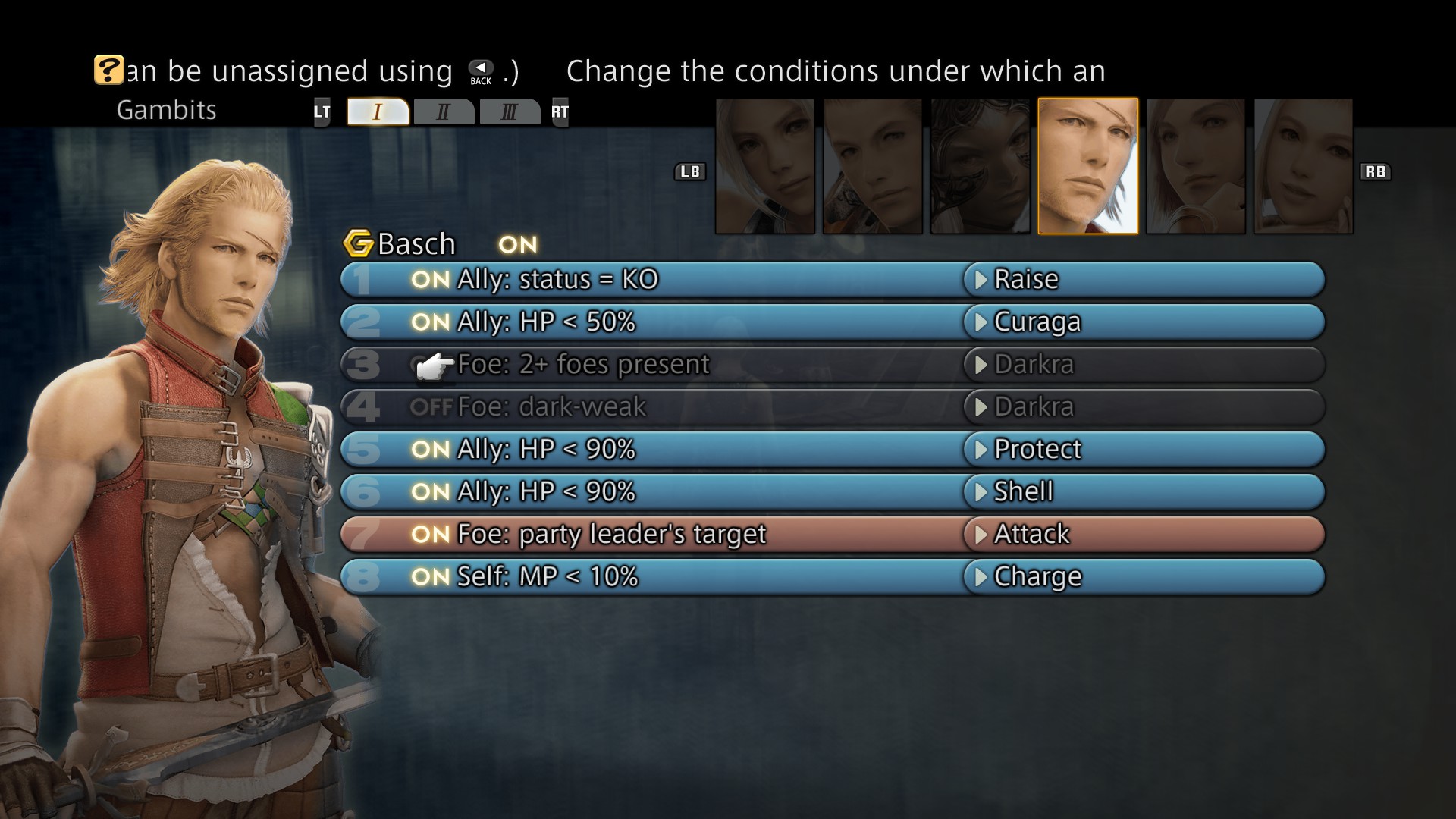
Alas, how few RPGs have scratched the same itch since. Plenty have tried, mind—Pillars of Eternity 2: Deadfire had a programmable allies system, and I've heard good things about Unicorn Overlord—but the tech didn't exactly catch on, even if other games of the era were also aping it. Dragon Age: Origins also had a "tactics" system you could use, but it was somewhat limited—and the game certainly wasn't built around them in the same way FF12 was.
Keep up to date with the most important stories and the best deals, as picked by the PC Gamer team.
But why should we bring gambits back, I hear you ask? Well, while I'll argue in favour of turn-based RPGs any day of the week, the gambit system had a few key advantages over my near-and-dear initiative order.
Program your party
Do you know why the UI of games like Clair Obscur, Persona, and Metaphor: ReFantazio are so thoroughly appreciated? Besides the stunning visual design and visionary artistry, I mean. It's because they solve a problem most turn-based RPGs wrestle with: Their menus.
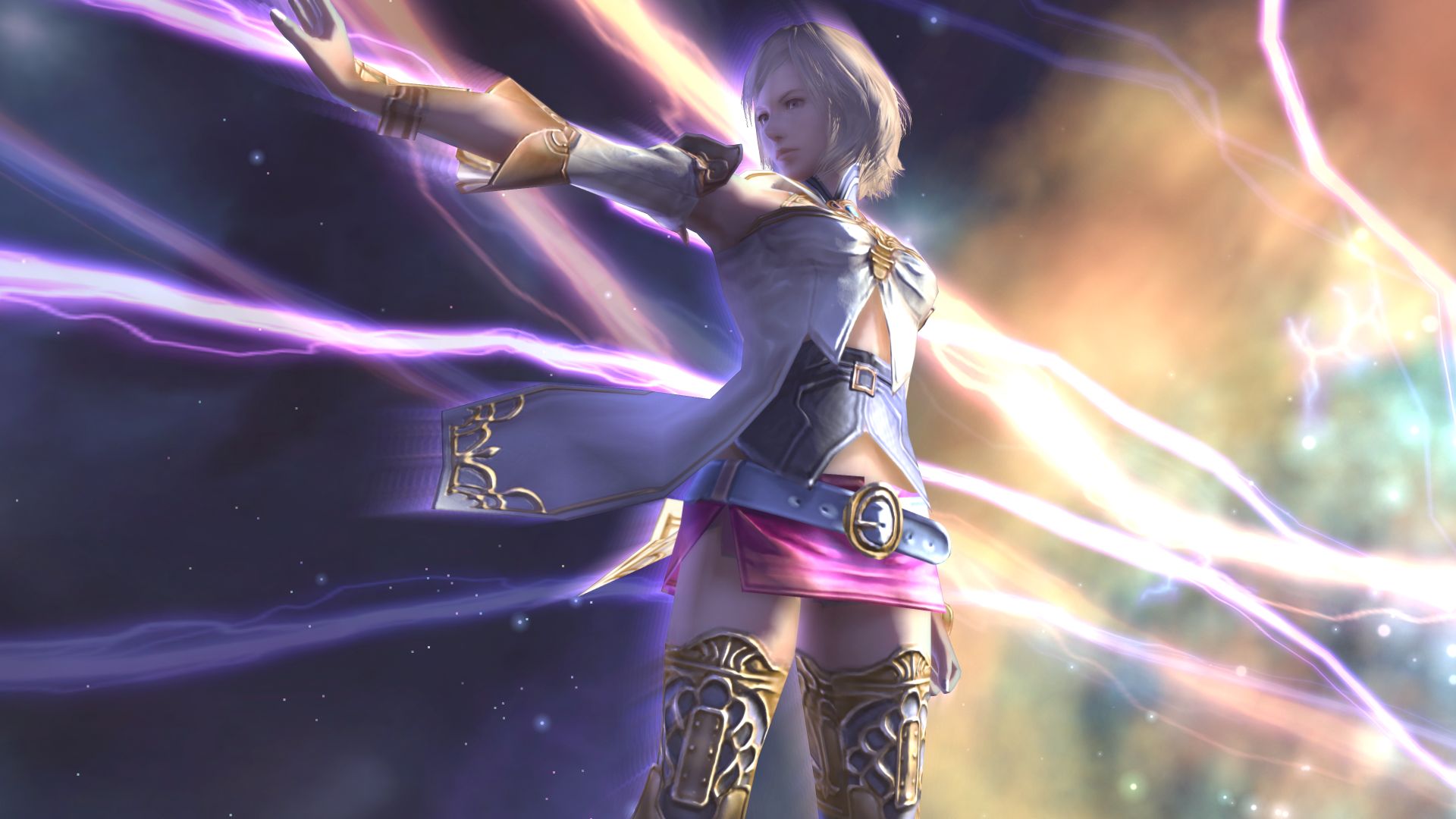
A classically turn-based Final Fantasy game involves a lot of flicking through menus—at first, this is fine, because you're making a series of interesting tactical decisions. But as you progress through the game, you eventually find your strategies, combos, and battle-plan. Which leads to you flicking to the same point on the same menu every single time.
The games I just mentioned speed up this endgame knowledge state via their UI design. Simply hit one of your face buttons, then hit another face button to select your attack of choice, and your turns start feeling like rudimentary fighting game combos, rather than flitting through a brochure.
The gambit system, however, solves this issue in a different way. There might be an alternate universe where you try out new and exciting strategies every single combat, but humans are creatures of habit. We all know you're going to have your support cast a heal on someone who's at low health, we all know you're going to buff everyone with haste, and we all know you'll be using an ether when you're out of MP. So why not frontload those decisions?
The idea of gambits seems intimidating at first, but really, it's just rolling a thousand repeats of the same strategic decision into one. And it's not as if you can't assume manual control whenever you want.
You could make the argument that this takes the fun out of an RPG—and to that I say: Hogwash! What I've just described is only the hook, the tip of the gambit iceberg. What makes the gambit system shine is how insidiously and cleverly it gets you hooked into micromanagement.
You got a licence for that action, mate?
FF12 doesn't give you access to the gambit system right away—instead, you can purchase new gambits from vendors, and unlock new gambit slots from the license board (where you also unlock new skills and the ability to use certain weapons). In my opinion, this is the gambit system's cleverest trick.
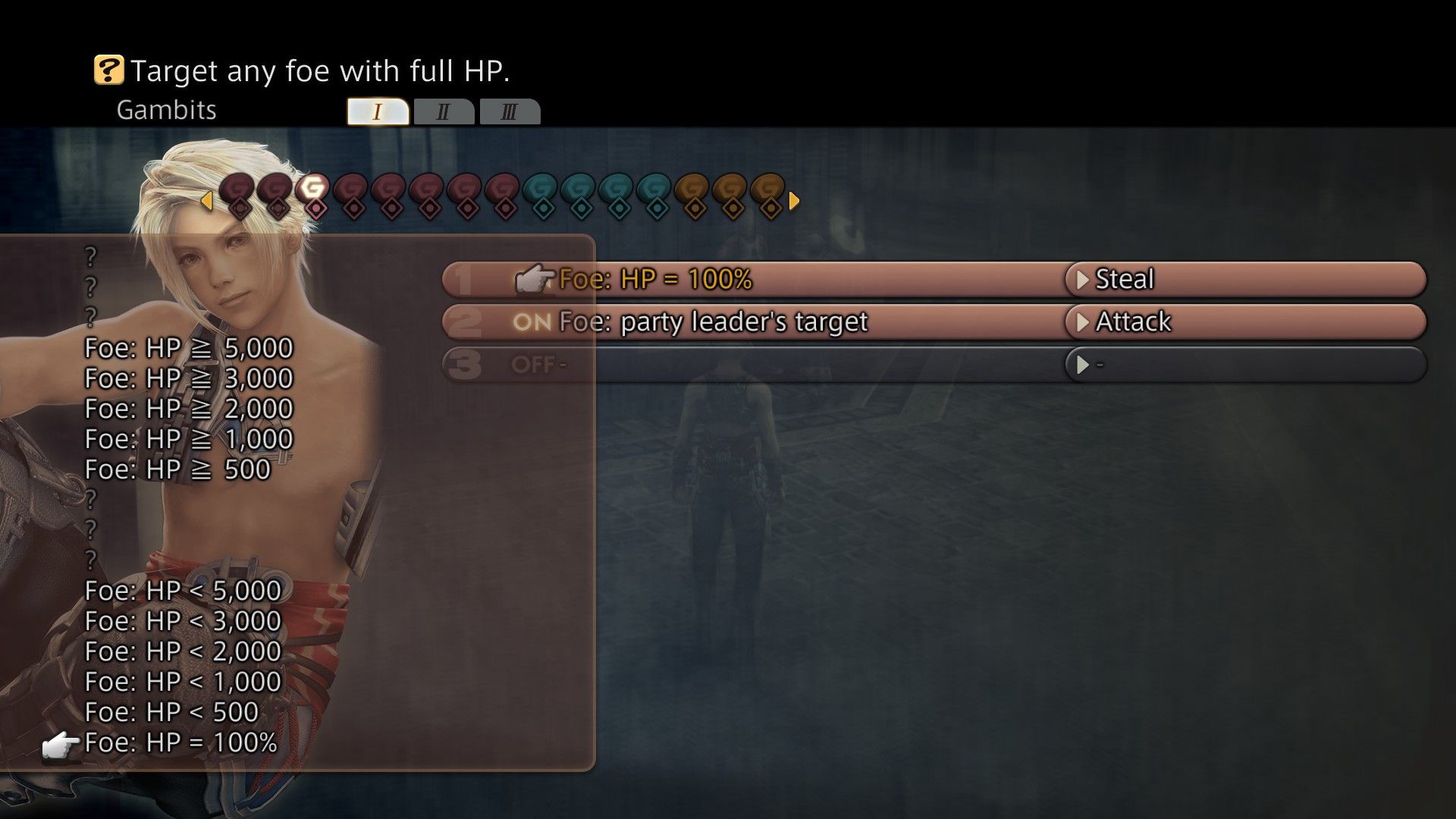
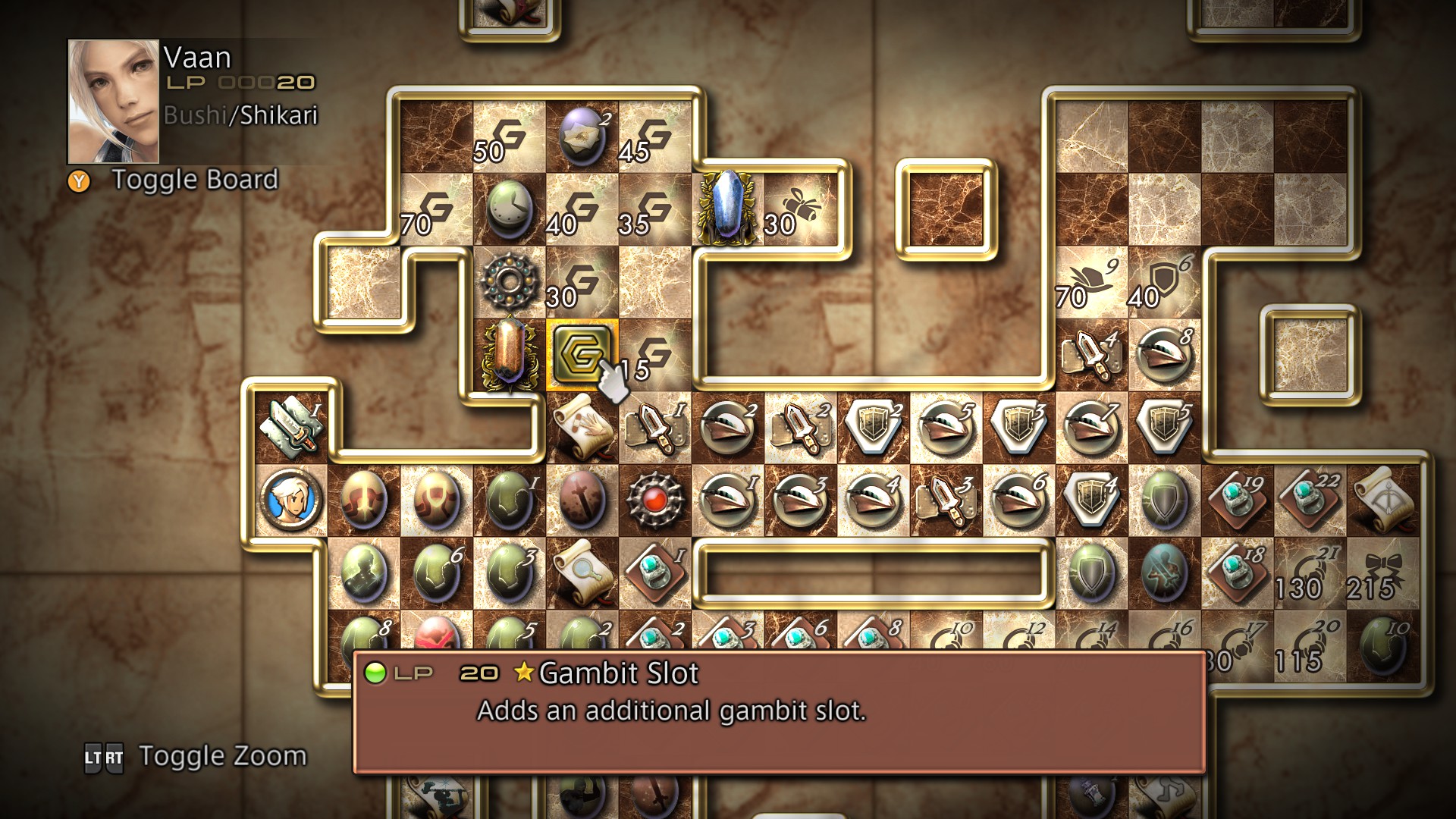
I said that the gambit system saves you time, and while that's sort of true, it's also technically a lie. A character's gambits start out humble—you might automate chugging a potion or an ether when your HP or MP is low. But by trickling options to you little-by-little, FF12 naturally encourages experimentation by framing gambits not as an optional system, but a path to player power.
Eventually, every battle becomes a chance to wonder if you could be a smidge more efficient. Maybe 25% is enough HP to be getting on with? Maybe, with enough gambits, I can get Penelo to auto-target elemental weaknesses? Soon, like an indecisive mechanic on a road trip, you're parking after every other combat to squeeze more out of your fantasy murder engine. The satisfaction of seeing your adjustments pay off in real-time is irreplaceable.
In a turn-based RPG, discovering an effective strategy consigns you to hours of flicking through the same menus in the same way—in FF12, the opposite is true."
In a turn-based RPG, discovering an effective strategy consigns you to hours of flicking through the same menus in the same way—in FF12, the opposite is true. Stumbling across an excellent combo, then programming it into your gambit system allows you the freedom to sit back and simply relax, basking in the glory of your systems knowledge.
That's not to say the gambit system is perfect. I still spent plenty of time as Vaan manually nicking items off enemies, because there was no effective gambit to automate that for me—and I don't mean to argue that gambit systems are inherently better. But they are interesting enough that I think they deserve a second chance.
Not just as an optional mechanic in a CRPG like PoE2, but as the core system around which a modern RPG hinges. I'm certainly not the first writer in PCG history to toe this line, but right now? The time is ripe. The masses are more open to unique RPG mechanics than they were before: And if we're doing turn-based RPGs again, I think gambits deserve their time in the sun, too—at least until an executive in 2040 decides turn-based games aren't popular and the cave-dwelling nerds'll "always show up", again.
Best cozy games: Relaxed gaming
Best anime games: Animation-inspired
Best JRPGs: Classics and beyond
Best cyberpunk games: Techno futures
Best gacha games: Freemium fanatics

Harvey's history with games started when he first begged his parents for a World of Warcraft subscription aged 12, though he's since been cursed with Final Fantasy 14-brain and a huge crush on G'raha Tia. He made his start as a freelancer, writing for websites like Techradar, The Escapist, Dicebreaker, The Gamer, Into the Spine—and of course, PC Gamer. He'll sink his teeth into anything that looks interesting, though he has a soft spot for RPGs, soulslikes, roguelikes, deckbuilders, MMOs, and weird indie titles. He also plays a shelf load of TTRPGs in his offline time. Don't ask him what his favourite system is, he has too many.
You must confirm your public display name before commenting
Please logout and then login again, you will then be prompted to enter your display name.


